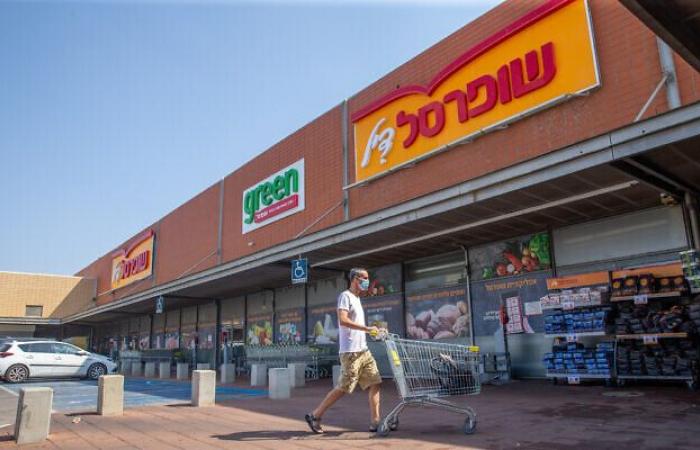Shufersal, Israel’s largest supermarket chain, saw its quarterly profits rise nearly 370% thanks to higher prices and strong demand for groceries, not to mention the higher number of Israelis staying in the country this summer due to the war against the Hamas terrorist group, which has now lasted more than a year.
Shufersal reported net profit of 238 million shekels for the July-September quarter, up from 51 million a year earlier. The supermarket chain’s third-quarter gross profit margin increased to 28.5% from 26.2% last year. Revenue increased by 6.3% – to NIS 1.4 billion during this period – and same-store sales increased by 6.5% year-on-year.
For Shufersal, this is the result of measures taken to improve efficiency and reduce costs, boosted by a greater number of Israelis present to do their shopping. Many Israelis have indeed remained in Israel this summer and during the Jewish holidays, as foreign airlines have interrupted their services to and from Israel due to the war.
Receive our daily edition for free by email so you don’t miss the best news. Free registration!
“The sharp drop in the number of foreign airlines flying to Israel this summer – a normally very busy period – as well as during the Jewish holidays in September, has had the effect of keeping a higher number of consumers in Israel, which stimulated purchases of basic food products,” explains to Times of Israel Shira Achiaz, retail analyst at IBI Investment House.
Foreign airlines have alternately canceled and resumed flights to Israel since October 7, 2023, the day the war in Gaza began with the Hamas pogrom in southern communities, during which thousands of terrorists murdered nearly 1,200 people, mainly civilians, and took 251 hostages.
In recent months, US airlines have completely suspended service to Israel due to intensifying fighting between Israel and Iran-backed Hezbollah in southern Lebanon and escalating tensions in the Middle East. . In Europe, most companies have extended the suspension of services to Tel Aviv until the end of March 2025.
People buying dairy products at the Shufersal Deal supermarket in Katzrin on November 28, 2022. (Michael Giladi/Flash90)
In addition, Israeli food suppliers have increased their prices this year, due, they say, to higher operating costs – electricity, water and municipal taxes.
“As the public debate in Israel focuses primarily on the war, food retailers are taking advantage of this to raise prices at a time when operational expenses are also increasing,” Achiaz continues. “We estimate that fast-moving consumer goods, such as food and cleaning products, have increased by an average of 5% this year. »
Shufersal is one of the top three supermarket chains that together capture more than half of the Israeli food retail market. High concentration in the Israeli food sector limits competition, puts upward pressure on prices and increases the cost of living in Israel.
Shufersal, which has 431 branches and more than 15,000 employees, has 2.1 million members of its loyalty program.
High concentration in the food sector comes with high costs for consumers, who struggle to make ends meet even as the economy is battered by war.
The cost of living in Israel is one of the highest in OECD countries, which is generally explained by the lack of competition between Israeli importers and manufacturers, who are therefore fairly free to increase prices, without forget about import restrictions that prevent foreign companies from entering the market.
According to comparative consumer price data from the Organization for Economic Co-operation and Development (OECD), food and drink prices in Israel are, on average, 52% higher than those in developed countries. , just behind South Korea.
The price of bread and cereals in Israel is one of the highest in OECD countries – 49% above the average: only Swiss prices are higher.
Dairy and egg prices in Israel are the second highest among the 38 OECD countries, 64% more expensive than the average.






